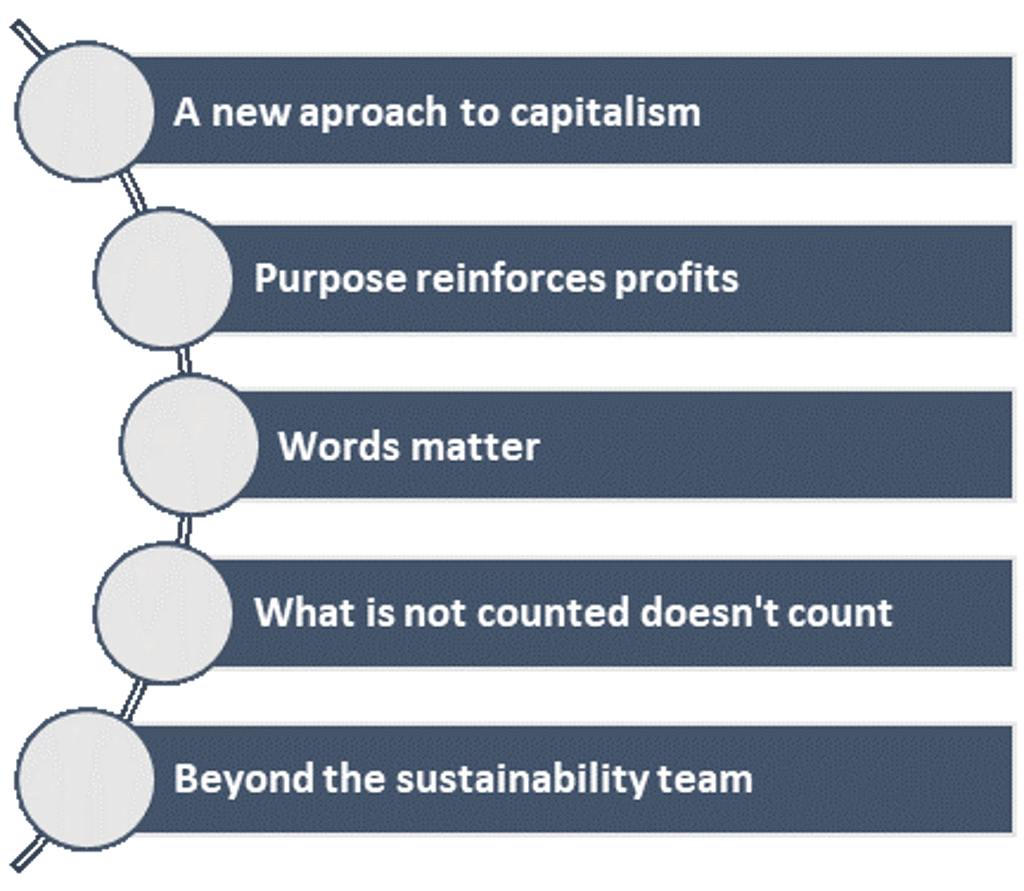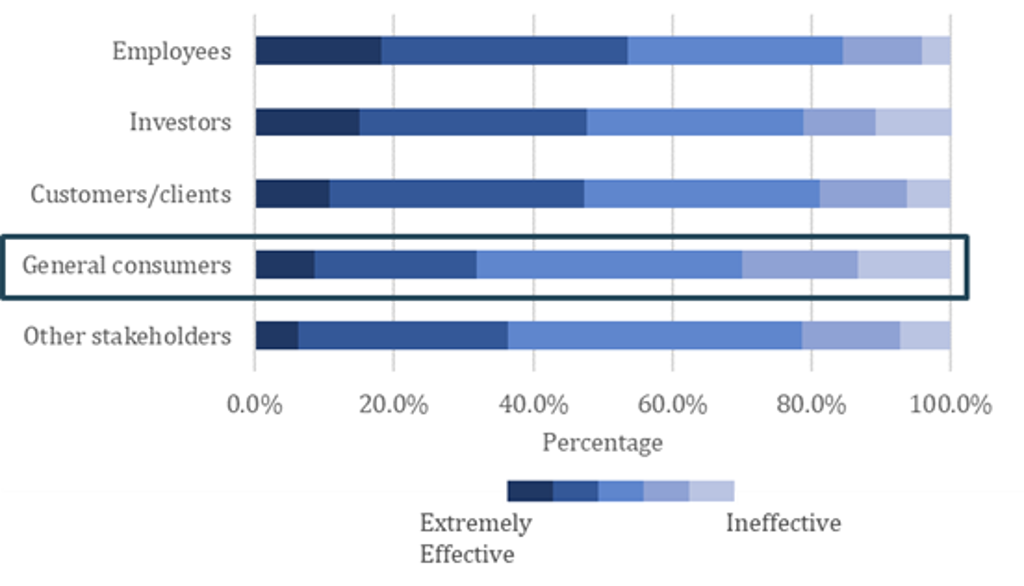In March 2021, Euromonitor ran a webinar From Sustainability to Purpose: The New Way of Doing Businesses which discussed new consumer values and the shift from sustainability to purpose, with three sustainability professionals at the forefront of this transition. This article explores some of the lessons learnt during the event, including the ideas that sustainability can make or break business models, while the values can be embedded into the company culture at all levels, not constrained to a specific department.
From Sustainability to Purpose: Lessons Learnt

1. A new approach to capitalism
The panel discussion kicked off with Mike Barry, former Director of Sustainable Business at M&S and one of the pioneers of green business in the corporate world, talking about the past and the future of sustainability. Mike explained that we are coming to the end of a forty-year cycle of capitalism, neoliberal taxation and low regulation that has allowed businesses to do what they wanted, where they wanted. However, since the pandemic, businesses have had to be more socially useful and more attuned to nature. In the future, companies will have their business models made or broken by sustainability.
2020 became the year for social action, for both businesses and consumers as a result of the Coronavirus (COVID-19) pandemic. Mike agrees that we need to maintain this momentum and believes that businesses can’t just go back to a compliance approach. We need a just transition, the equivalent of net-zero carbon for people.
2. Purpose reinforces profits
Euromonitor’s Voice of the Industry: Sustainability survey (2020) reflects the high interest in purpose-driven strategies in the corporate world, with 50% of surveyed professionals claiming to work for a purpose-driven organisation. Christa Gyori, CEO and co-founder of Leaders on Purpose, a for-benefit organisation that helps businesses to become more purpose-driven, shared some good news for businesses thinking about joining the purpose-driven movement: Business resilience, much higher employee and consumer engagement, and access to lower-cost capital in many cases are among the advantages that purpose-driven strategies offer to businesses.
Hege Sæbjørnsen, IKEA’s Global Affairs and Partnership adviser for COP26, agreed with Christa and mentioned that IKEA’s sustainability strategy is the purpose of the company and the North star guiding the business direction. Although it is what drives IKEA’s success, surprisingly many people still don't know that IKEA is a purpose-led company.
The purpose is disrupting business strategies and as Mike mentioned, businesses can be either on the right or the wrong side of these disruptions. Mike gave some examples of some industries leading the way, such as the automotive industry with the shift from diesel to electric, the food industry with the shift from outdoor to indoor food production, and the packaging industry, with the shift away from single-use plastics.
3. Words matter
Consumers reward businesses that put purpose first. According to Euromonitor’s Voice of the Consumers Lifestyles survey, in 2021, almost a third of global consumers buy from brands that are aligned with their values and over a fourth boycott those that aren’t.
Christa agreed on this, adding that people want to see business leaders advocate for things inside and outside of the organisation and to communicate authentically, with honesty and transparency, talking about how to address and change things that don’t work.
With the acceleration of digital transformation, we will see more online activism influencing consumer behaviour, especially in the younger generations. This means that communicating sustainability and purpose effectively is playing an increasingly important role in business success. However, only 8% of businesses believe that their sustainability communication with consumers is extremely effective, while 13% think it is ineffective (Euromonitor’s Voice of the Industry: Sustainability survey, 2020).
How effective is the business at communicating sustainability with the stakeholders?

Source: Voice of the Industry: Sustainability survey, 2020
Businesses need to change their narrative, and Hege shared some tips on how this new narrative might look. Companies need to keep things simple and can't get away with complicated language. It is important to understand that different audiences also have very different ways of listening, so need a targeted approach. It comes down to understanding your audience, their dreams and aspirations, and being willing to test and discover the kind of language that resonates with them.
4. What is not counted doesn't count
If brands are to stay operational and profitable, they need to stop taking things for granted and find new ways to track progress and metrics to measure the social and environmental impact of their initiatives.
IKEA is also leading on this front and Hege shared with us how the company measures progress on new sustainability targets. For instance, in 2021, IKEA set up the target of helping a hundred million people to live better within the limits of one planet. This is a very ambitious target that IKEA is tracking through sales and social media mentions. The company also measures the effectiveness of its communication, which enables the business to improve and adjust how things will be done going forward.
Christa added that companies need to adopt a more holistic framework to measure progress. Organisations often make progress on one issue, without recognising that it may undermine another. This is an interconnected world, and it is essential to have a full scope of business impacts and be fully transparent about it. It is not easy and sometimes there might be a setback, but it just means addressing that setback quickly with honesty and transparency.
5. Beyond the sustainability team
Times are changing and sustainability roles are evolving. As sustainability is increasingly embedded into company culture, some companies are making it part of every employee’s job, and IKEA is pioneering this trend. A couple of years ago, the company took the bold step of making every country retail manager, a chief sustainability officer, linking sustainability to their goals, KPIs and job descriptions. Hege noted that this change does something to the mindset and obviously helps the organisation to achieve its wider sustainability goals.
IKEA operates in 37 countries and it can't be just the responsibility of the sustainability manager or the small sustainability department to drive this agenda. Christa agreed, saying that people in leading positions can't possibly know everything. They need to coach, empower, and listen to their employees. Leadership of the future requires a blended approach between coaching and listening.
For more information, watch the on-demand webinar and download the slides
